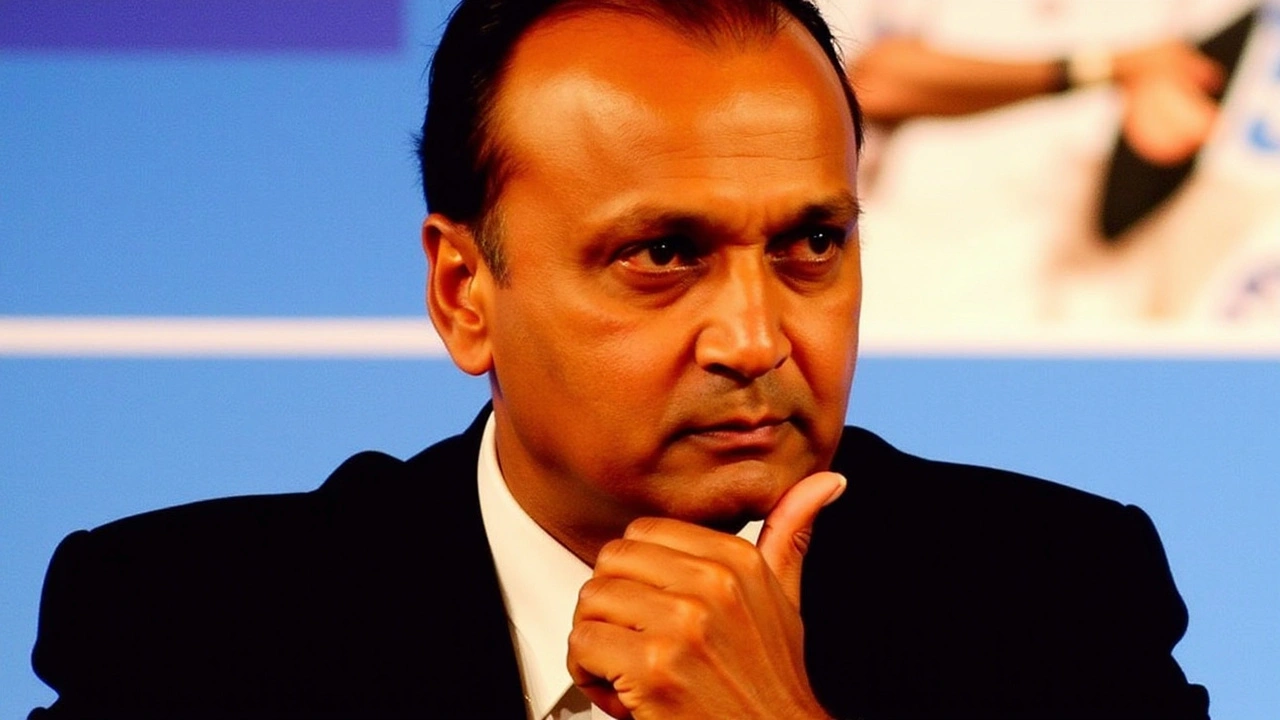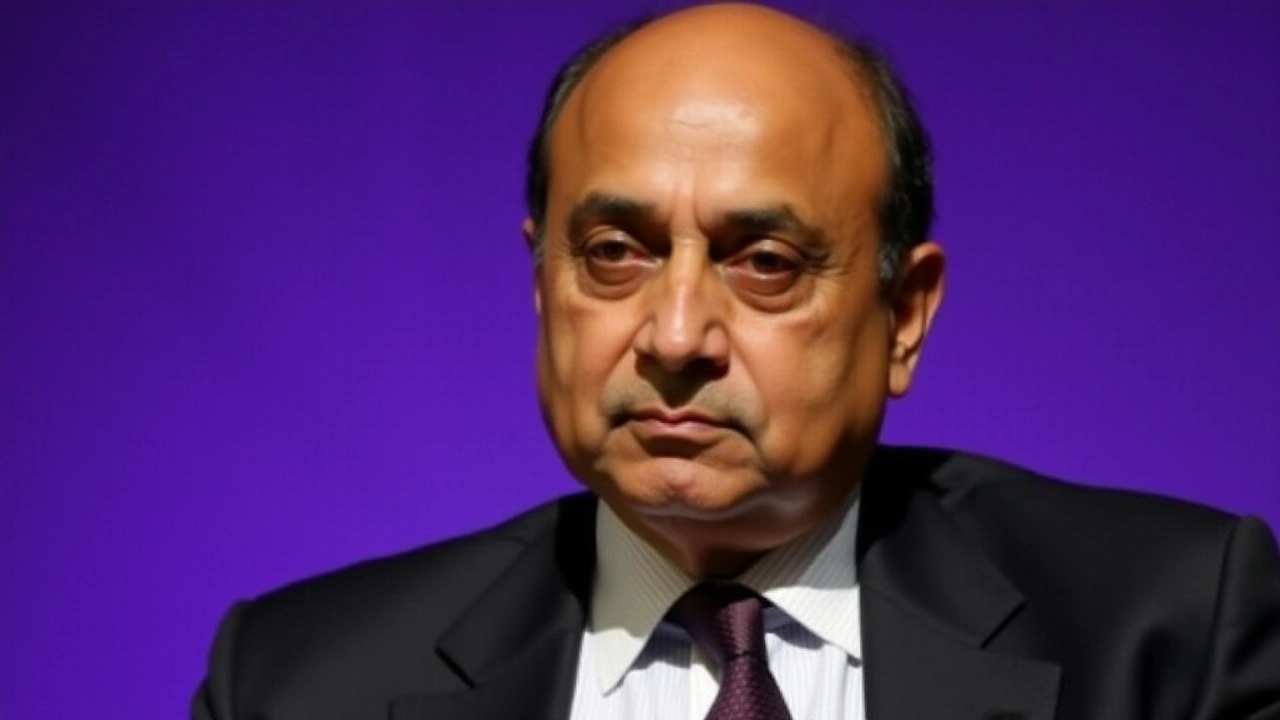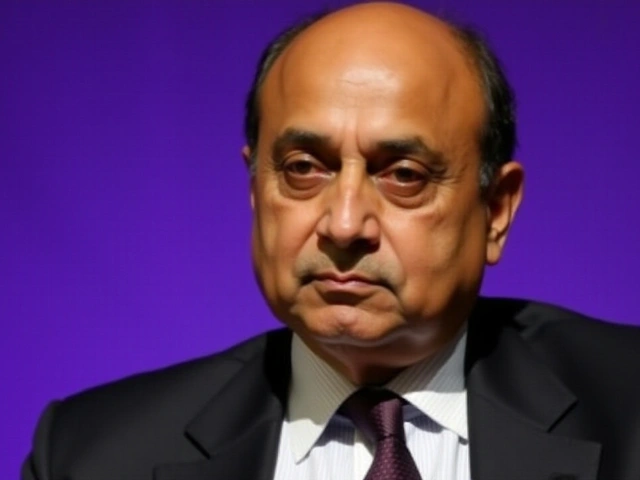Regulatory Crackdown: Anil Ambani's Battle with SEBI
Anil Ambani, the chairman of the Reliance Group, is at a crossroads as he faces a five-year ban from the securities markets imposed by the Securities and Exchange Board of India (SEBI). The ban, which also comes with a fine of Rs 25 crore, stems from allegations of fund diversion from Reliance Home Finance Limited (RHFL), a former subsidiary of Reliance Capital. These allegations have not only stained Ambani's business credentials but have also raised questions about governance in these once-celebrated companies.
Ambani's tryst with SEBI took a critical turn in February 2022, when he resigned from the boards of Reliance Infrastructure and Reliance Power. This step followed SEBI’s interim order and marked a period of compliance for the last two and a half years. Now, Ambani and his legal team are scrutinizing the final order issued on August 22, 2024. According to a spokesperson, he is exploring all legal remedies and will take appropriate measures as advised by his legal team.
The Allegations and SEBI's Stance
SEBI's final order accuses Ambani of orchestrating a scheme designed to siphon off substantial sums from RHFL by structuring them as loans to credit-unworthy borrowers. These borrowers were allegedly closely linked to the promoters, casting a shadow on the ethical practices within the organization. The regulator has contended that more than Rs 9,000 crore worth of loans were made to borrowers who lacked the financial capability to repay.
This regulatory crackdown has resulted in a comprehensive ban for Ambani and 24 others, including several top executives from his group and other affiliated companies. The ban restricts them from accessing the securities market and holding key positions in listed firms for a duration of five years. Further penalties amounting to Rs 624 crore have been slapped on 27 individuals and entities, reflecting SEBI's unforgiving stance on financial misconduct.
Impact on Reliance Group and Affiliates
In response to the regulatory actions, Reliance Infrastructure and Reliance Power have issued statements distancing themselves from the controversy. They emphasized that Ambani's resignation from their boards in 2022 was purely in compliance with the interim orders of SEBI and clarified that they were not parties to the proceedings and no directions were issued against them. Both companies assured stakeholders that the recent SEBI order does not affect their ongoing business operations.
The allegations against Ambani and the subsequent sanctions have evoked a broad spectrum of opinions within the industry. The accusations of siphoning funds through allegedly fraudulent loans primarily focus on the period when RHFL channeled over Rs 9,000 crore to borrowers with questionable repayment abilities. SEBI's findings suggest that these financial transactions were orchestrated to benefit entities closely linked to the promoters, thus compromising the integrity of the loans provided.
Regulatory Mechanism and SEBI's Enforcement
The investigation by SEBI was catalyzed by numerous complaints regarding fund diversions within RHFL. This subsidiary of Reliance Capital was involved in providing housing loans, loans against property, and construction finance. The complaints and subsequent probe unveiled a complex web of financial intermediations that allegedly facilitated the siphoning of funds.
SEBI, India's market regulator, aims to enhance transparency and protect investor interests through rigorous oversight and enforcement actions. The order against Ambani and his associates serves as a stark reminder of the watchdog's commitment to upholding market integrity. The regulatory body's forceful stance not only penalizes the culprits but also sends a strong signal to other market participants about the consequences of malfeasance.
Legal Battle and Future Implications
As Ambani reviews his legal options, the situation poses significant implications for his business empire and personal credibility. The five-year ban and substantial financial penalties jeopardize his involvement in capital markets and his leadership roles within listed firms. Given the magnitude of the sanctions, Ambani's response will undoubtedly shape the roadmap for his future business engagements.
While stakeholders keenly await Ambani's next move, the unfolding legal processes are likely to attract considerable attention. The legal battle against SEBI’s order will be closely watched, considering the wider ramifications it holds for compliance and governance standards across corporate India. Ambani’s endeavor to contest or comply with the order could set important precedents for how similar cases are handled in the future.
Broader Industry Impact
This high-profile case throws a spotlight on the broader industry dynamics. The allegations and subsequent actions against a prominent industry figure like Ambani bring to the forefront issues of corporate governance and regulatory compliance. The stringent measures adopted by SEBI are likely to prompt other business leaders to reassess their adherence to regulatory norms and reinforce an environment of transparency and accountability.
For investors, the case underscores the importance of robust due diligence and the need for vigilance while engaging with corporate entities. Market participants may adopt a more cautious approach, factoring regulatory compliance and ethical governance into their investment decisions. The long-term outcome of SEBI's action will likely contribute to shaping investor confidence in the Indian capital markets.

Ambani's Legacy and Future Strategy
Amidst the regulatory and legal upheaval, the legacy of Anil Ambani is under intense scrutiny. Once hailed as a business magnate steering diversified enterprises under the Reliance banner, Ambani's current predicament is a stark contrast. The allegations of financial impropriety and the subsequent regulatory backlash pose existential challenges to his business acumen and ethical standing.
However, Ambani's forthcoming strategy to navigate these turbulent waters could potentially redefine his legacy. By addressing the allegations and complying with any legal mandates, he might restore some degree of credibility. Alternatively, a robust defense and successful overturning of the sanctions could reaffirm his stance and reputation.
At this juncture, stakeholders and observers are keenly focused on Ambani’s next steps. Whether he decides to contest the order or comply and chart a new path, his actions will likely be pivotal in determining not only his future but also the broader narrative surrounding corporate governance in India. The unfolding saga of Anil Ambani against SEBI provides a compelling case study on the intricate dynamics between regulatory bodies and business conglomerates.


Vikas Yadav
August 27, 2024 AT 06:39Wow, this whole thing is just... a mess, isn't it? I mean, I get that SEBI has to enforce rules, but when you’re talking about Rs 9,000 crore being moved through shell borrowers-come on. That’s not just negligence, that’s systemic rot. And yet, why is it always the faces we know, like Anil Ambani, who get the full brunt? What about the banks, the auditors, the lawyers who signed off? Where’s their fine? Where’s their ban? It feels like a performance, not justice.
I’m not defending him, mind you. But this whole narrative is too clean. Too neat. Like someone wrote it for a headline, not a regulatory body trying to fix real problems.
Divya Johari
August 28, 2024 AT 04:27It is imperative to underscore that the Securities and Exchange Board of India operates under a fiduciary mandate to safeguard the integrity of capital markets. The findings presented in the final order are not merely allegations but substantiated conclusions derived from forensic analysis of financial flows. To entertain any notion of leniency or procedural ambiguity is to undermine the very foundations of market ethics. The penalty, while severe, remains proportionate to the scale of fiduciary betrayal.
Moreover, the public’s trust in financial institutions is not a commodity to be bargained with. It is a covenant. And this covenant has been egregiously violated.
Aniket sharma
August 30, 2024 AT 01:44Look, I’ve worked with small lenders for years. What SEBI found? That’s not rare. It’s the norm in half the NBFCs that never made headlines. Ambani’s name is big, so he’s the one getting crucified. But if you want to fix this, you don’t just ban one guy. You overhaul the entire system of loan approvals, audits, and board oversight. Otherwise, ten more will pop up next month.
Let’s stop treating this like a drama and start treating it like a systemic failure. And yeah, maybe the regulators need more teeth-but also more brains. Not just punishment. Prevention.
Unnati Chaudhary
August 31, 2024 AT 08:34It’s wild how we turn corporate scandals into soap operas, isn’t it? One minute he’s the golden boy of Reliance, next he’s the villain in a Bollywood finance thriller. But behind all the headlines and rupees, there are real people-employees who lost jobs, investors who trusted the name, families who counted on those dividends.
I don’t know if he’s guilty or innocent. But I do know this: when a system lets someone rise so high and then crushes them so hard, it’s not justice-it’s catharsis. And catharsis doesn’t heal anything. It just makes us feel better for a while.
Maybe the real question isn’t ‘What did he do?’ but ‘What did we all let happen?’
Sreeanta Chakraborty
September 1, 2024 AT 16:31SEBI is a Western puppet agency.